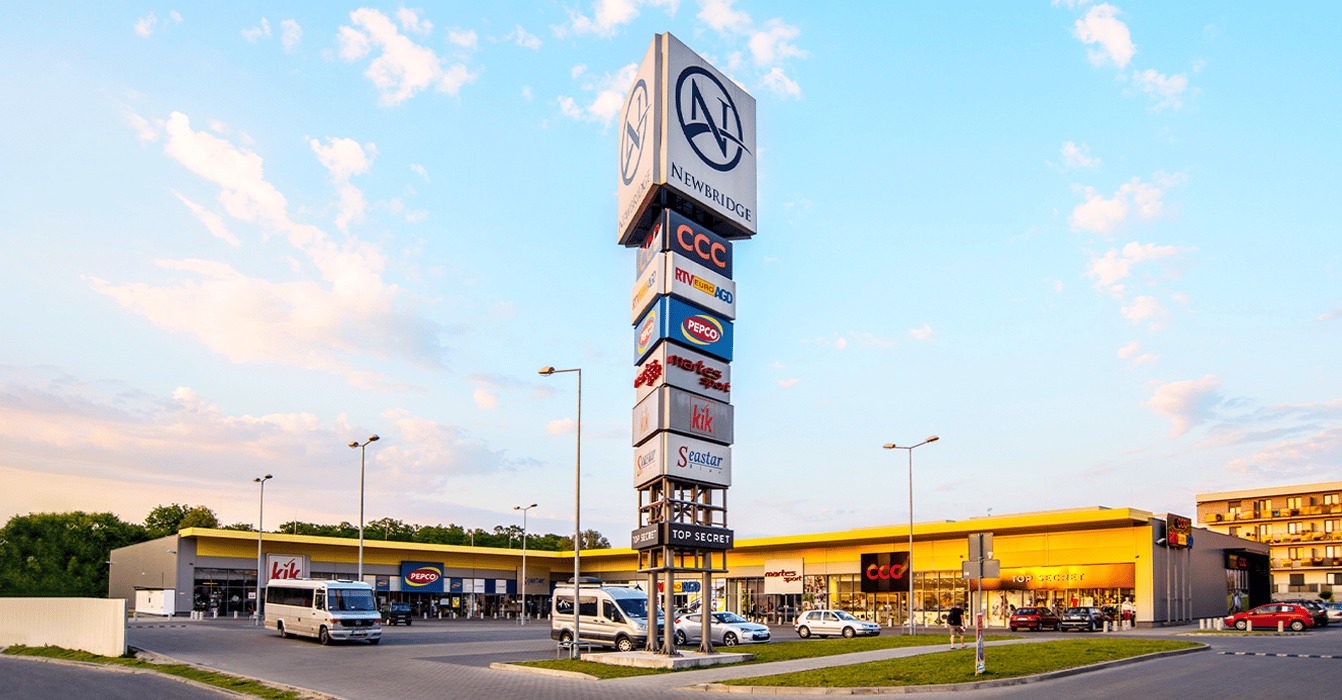 Source: Nodar77 | Envato
Source: Nodar77 | EnvatoGreenman Group CEO: Grocery retail on the rise
John Wilkinson speaks to GRI to give an insight into the grocery retail landscape, as well as the importance of ESG targets
Written by Sarah Garnett
The population's demand for food is predominantly inelastic and not substitutable. Food consumption expenditures have consistently increased over the past twenty years, making food-anchored commercial properties not only a stable market segment and asset class, but also a key investment opportunity.
The grocery retail sector benefits from a highly stable demand situation, making it particularly resilient to economic downturns or other external influences. Despite a declining consumer sentiment and consumer uncertainty due to inflation, the grocery retail sector reported an overall increase in sales in Europe in 2022 (Europanel). As food inflation has been trending higher than headline CPI grocers have generally experienced a reduction in their effort ratios which underlines a significant growth potential for the sector.
Over 50% of stationary retailers intend to expand their locations in the future aiming to further increase their average sales area. 37% would like to enter new markets, with Germany, France and Poland among the top locations mentioned (CBRE).
The Greenman Group
In February, the Greenman Group announced its expansion into Poland, setting its sights on further European expansion into grocery-anchored real estate investments. The Group consists of ten separate but closely aligned businesses whose activities are largely focused on the stewardship of grocery-anchored real-estate assets. The Group's flagship fund, Greenman OPEN, is the largest Article 9 real estate fund available to investors with €1.1bn of grocery-anchored assets under management.
The Greenman Group places considerable emphasis on ESG factors, not only making them an integral part of their corporate DNA and investment strategies but also in their approach to managing their assets as properties that incorporate ESG criteria are being transacted at higher values than those without.

CEO of Greenman Group, John Wilkinson, told GRI Club: “I believe the grocery retail industry will continue to experience significant growth and transformation in the coming year”.
Several trends and factors are likely to shape this growth. Firstly, sustainability and retailers’ own environmental targets will play a crucial role in shaping the future of grocery retail.
Tackling Scope 3 emissions will require a targeted approach from both the tenant and landlord. In fact, landlords should be in the position to offer a range of activities to support tenant and customer sustainability demands. For example, the sale of renewable energy generated via PV-panels, EV-charging stations to support the reduction of the shopping journey carbon footprint, and the installation of more energy-efficient equipment.
The EU's Paris Agreement and EU Taxonomy will open doors for increased tenant engagement and sharing of data which we believe will drive transformation and innovation in the sector.
Wilkinson adds: "We believe that a key pillar of growth in the grocery retail sector will be the changing role of the landlord, as we embrace the responsibility to support our tenants in reaching their green goals."

Wilkinson further comments: “Our subsidiaries and joint ventures have built long-term partnerships with some of Germany’s leading grocery retailers, retail real estate investors, and developers. We have successfully implemented ESG initiatives that not only contribute to our sustainability goals of reducing our OPEN fund portfolio emissions to zero by 2050, but importantly ensure that our real estate assets remain relevant, maintain tenant retention, and are developed in the best way possible”.
As a result of those initiatives and strategic targets, says Wilkinson, Greenman OPEN was classified as an Article 9 fund under the European Union’s Sustainable Finance Disclosure Regulation. “This achievement reflects the ongoing commitment to ensuring that Greenman’s investment strategy is aligned with the Group’s overall sustainability goals, helping to maximise the value of their assets and support their tenants’ long-term sustainability goals.
Article 9 broadens our ability to provide alternative activities which will support tenant’s green needs and we recognise the need to set a new bar for tenant engagement. It also obliges tenants to provide data and opens doors to Green Loans.”
Retail in Europe
The most significant asset classes for Retail investment in Europe Q1-Q3 of 2022 were Shopping Centres, High Street, Retail Warehouse, and Supermarkets, with the latter contributing 11% of the total investment volume. The UK and Germany led these investments at 22% and 18% respectively, with Poland taking 3% of the total investment share.
In anticipation of Europe GRI, read the overview of the discussions at the regional GRI Club events.
In the EU as of March 2023, total Retail trade has decreased by 4.1% year-on-year, while food, drink and tobacco product trade has decreased by 6.6%, despite a drop in inflation. This presents an interesting situation as some experts still predict a recession and real estate investments drop in most European countries.
Members of GRI Club will discuss the global volatility in the real estate market at the Global Summit in July, as well as at GRI’s flagship event in September, Europe GRI.
“By actively engaging in discussions, panels, and networking sessions, we get the opportunity to build meaningful relationships, foster our industry network and enhance the value we provide to our tenants, customers, and investors.”
GRI’s events allow executives to contribute to the industry's growth and development, as real estate leaders share their expertise and strategy to make a meaningful impact on the future direction of the European real estate sector.
Greenman is a Lead Sponsor of Europe GRI 2023, and John Wilkinson will moderate the discussion on ESG. Find out more about the event here.



